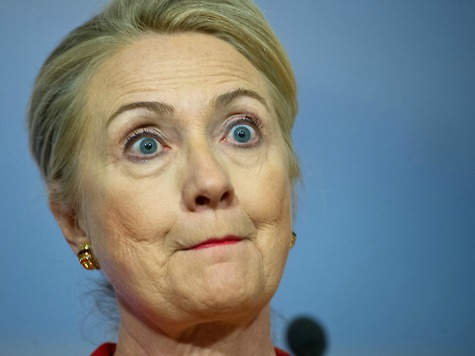House Foreign Affairs Committee Chairman Ed Royce (R-CA), who yesterday initiated legislation to ensure that future Accountability Review Boards are not controlled by the State Department, is now calling on the State Department Inspector General to investigate the ARB’s Benghazi report for inaccuracies. Royce sent a letter to acting Inspector General Harold W. Geisel asking questions that he demanded Geisel investigate.
“While the ARB appeared to be thorough in some respects,” Royce wrote, “it was regrettably lacking in others. For example, the ARB failed to interview the senior-most Department officials, including then-Secretary Hillary Clinton, Deputy Secretary William J. Burns, and then-Deputy Secretary for Management and Resources Thomas R. Nides.”
Royce cited “critical inadequacies in the ARB,” as illuminated by the three whistleblowers questioned before the House Oversight Committee on Wednesday.
Here is the full list of questions Royce wants investigated:
- How did then-Secretary Hillary Clinton select the Benghazi ARB members?
- Did any ARB member have a pre-existing relationship with anyone being investigated?
- What is the process by which an ARB determines whether to interview officials? Why did the Benghazi ARB fail to interview the Department’s senior-most officials, including then-Secretary Hillary Clinton, Deputy Secretary William J. Burns, and then-Deputy Secretary for Management and Resources Thomas R. Nides?
- Was it reasonable for the Benghazi ARB to conclude that responsibility for the Department’s security failures rested at or below the Assistant Secretary level? Was the Benghazi ARB aware, or should it have been aware, of facts that would challenge this conclusion?
- On what basis did the ARB assign blame to the Assistant Secretary for Diplomatic Security and the Deputy Assistant Secretary for Near Eastern Affairs, yet not the Assistant Secretary for Near Eastern Affairs?
- The Foreign Affairs Manual contains provisions that address the convening and administration of ARBs, including the appointment of an Executive Secretary who, according to the Manual, is typically a senior Foreign Service officer. Mr. Hicks testified that Uzra Zeya, now acting Assistant Secretary for Democracy, Human Rights and Labor, served as the Benghazi ARB’s Executive Secretary. Given Ms. Zeya’s clear ties to the senior-most policymakers within the State Department, and her awareness of events prior to the launching of the investigation, why was she selected as Executive Secretary? What was Ms. Zeya’s role in the investigation?
- According to testimony provided by Mr. Hicks, there was no stenographer present when he was interviewed by the ARB. Is it the case that the Benghazi ARB did not use a stenographer to transcribe interviews with all witnesses? If so, then why? To what extent have previous ARBs used stenographers to transcribe witness interviews?
- During the Benghazi ARB’s investigation, was there any interaction between the ARB members and Department officials outside the course of the official investigation (e.g., outside of official interviews, interrogatories, administrative requests, etc.). If so, what was the nature and frequency of such interaction, and which State Department officials were involved?
- Did the Benghazi ARB have access to – and review – the over 25,000 pages of internal records that the Department has made available to the Congress? If so, when were they made available? For purposes of your inquiry, please note that the Department did not make tranches 6, 7, and 8 available to Congress until January 2013 – one month after the ARB submitted its final report.
10. Did the Department provide the ARB with documents and information that it did not provide to Congress?
Ben Shapiro is Editor-At-Large of Breitbart News and author of the New York Times bestseller “Bullies: How the Left’s Culture of Fear and Intimidation Silences America” (Threshold Editions, January 8, 2013).

COMMENTS
Please let us know if you're having issues with commenting.